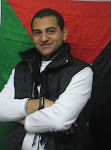Peace Students 2010 Modular Period Three - Native Challenge
Austrian Armed Forces Advance Training - Day One
Is this the toughest peace program in the world? Some individuals may answer yes to this question while others may disagree; nevertheless, the program definitely offers a unique learning approach encompassing new challenges and unforgettable experiences for peace students.
36 summer term students, coming from approximately 22 different countries, completed the first day of a five-day military training program. The training was facilitated by the Austrian Armed Forces at a military secured location in Tirol over 2000 meters high in the Austrian Alps.
As peace students, we often need the extra guidance and insight in choosing our main career focus as future peace workers. In this regard, students were given the opportunity to be exposed to situations through practical simulations and role-plays to help them make the decision or reflect on whether fieldwork in conflict and post conflict zones is an appropriate choice for their future.
Lessons were conducted by military personnel with an extensive accumulation of experience and expertise from missions abroad in locations such as Kosovo, Afghanistan, Chad etc. The Major in command noted to the students in the introduction session that the aim of this intense training is not only to provide them with basic deployment knowledge on peacekeeping operations abroad, but also to create an environment for developing the relevant practical skills and abilities which may save a person´s life on a field mission.
As the schedule of the day unfolded, students became familiar with the main objectives governing the activities for the training period. The facilitator in the introduction re-emphasized that a key feature of the training is learning by doing. As such, theoretical lessons are accompanied by practical training. It was further explained that there would be the planning of tasks by students to connect imparted fields of knowledge and situational training. Two days were designed mainly for theoretical and practical training and the remaining three days allowed for practical and suituational exercises.
“How can these objectives be achieved or realized?” To start with, the students were divided into five groups; a team which played the role of a headquarters in a typical peace keeping operation abroad (3rd term students) and four other teams or squads, which focused more on the implementation of plans designed by the headquarters (1st and 2nd term students).
The platform for the development of leadership skills, team building and interpersonal communication approaches was intricately presented to students since each group was assigned with a leader and second-in-command and working team members. This also applied for the headquarters team who had the responsibility for planning and assessing all the details regarding the logistical, financial and communication aspects of the simulation as well as adapting to the events and changes which unfolded from the student’s perspective.
With the teams divided and the main designated roles established, the headquarters was given the task to commence planning the simulated mission, while the other students continued with the theoretical and practical training. A basic overview of the United Nations in peacekeeping operations was presented; this included its role, functions, scope of operation under different UN articles and challenges encountered. The second presentation focused on the basics of peace support operation and the different staff structures.
On a more practical note, the final lecture of the day concluded with training on radio communication. Since the radio is considered one of the main mediums to communicate necessary updates on the location of team members and the status of assignments in the field, students became familiar with the guidelines and procedures and codes for sending and receiving messages.
Essentially, the first day of training served as a critical introduction for the days to follow and more over for students who decide to follow the path of working for peacekeeping operations in the field.





No comments:
Post a Comment